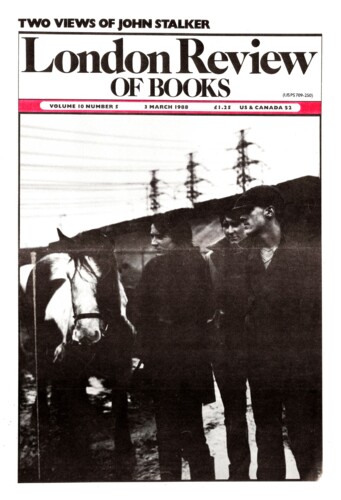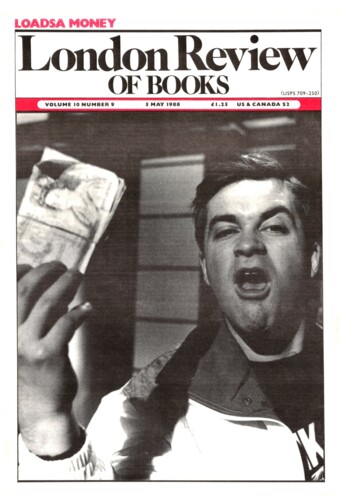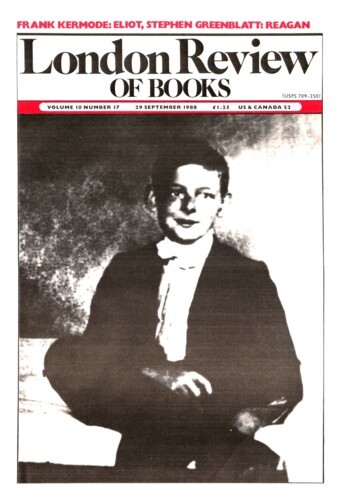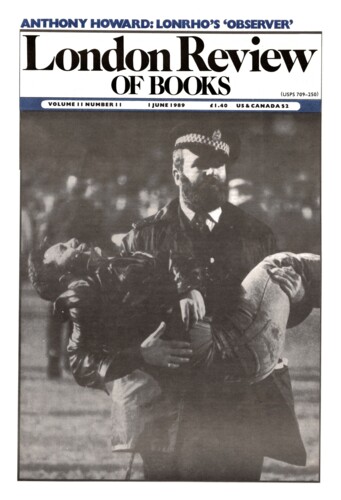Catch 28
John Lanchester, 3 March 1988
Writing about sex tends to go wrong in one of two related ways. The first is through embarrassment or over-excitement on the part of the author: overly rhapsodic descriptions of sex, in particular, tend to cause feelings of unease (Lawrence, Mailer). The other, subtler way is through the failure to show sex as a function of character: to depict sex in fiction as a holiday from personality is to make sex, in fictional terms, merely digressive. One of the triumphs of The Swimming-Pool Library – a startlingly accomplished first novel – is the tonal control it achieves in writing graphically and explicitly about homosexual sex while never seeming flustered or prurient, and never wavering in the amused, ironic control of the narrating voice. ‘There were more reckless propositioners,’ the narrator says of the showers at his favourite swimming-pool, ‘like the laid-back Ecuadorian Carlos with his foot-long Negroni sausage of a dick; his (successful) opener to me had been: “Boy, you got the nicest dick I ever see” – a gambit only really useful to those who are pretty well set up themselves.’ The measured, formal movement of the prose, its hints of scholarly fastidiousness, give a flavour of comedy of manners to ‘acts in which’, the architecture-loving narrator remarks, ‘the influence of the orders, the dome, the portico, could scarcely be discerned’. However Dionysian the events depicted – fellatio, sodomy, an erection passing along a line of men in the shower ‘with the domino effect of a Busby Berkeley routine’ – the narrator’s tone remains, in keeping with his personality, resolutely Apollonian.’





